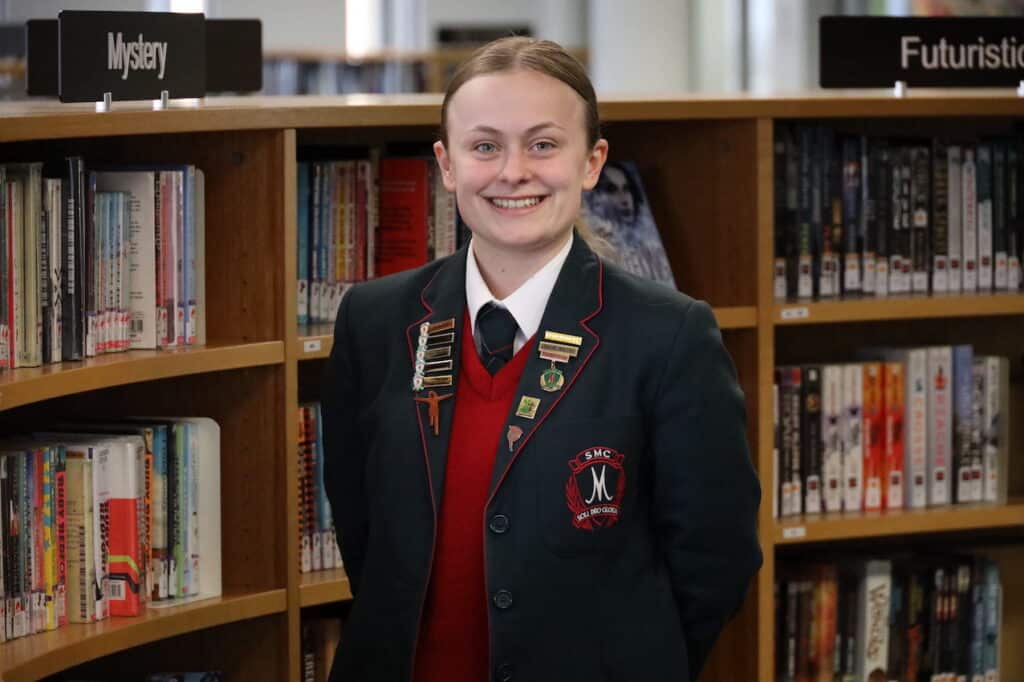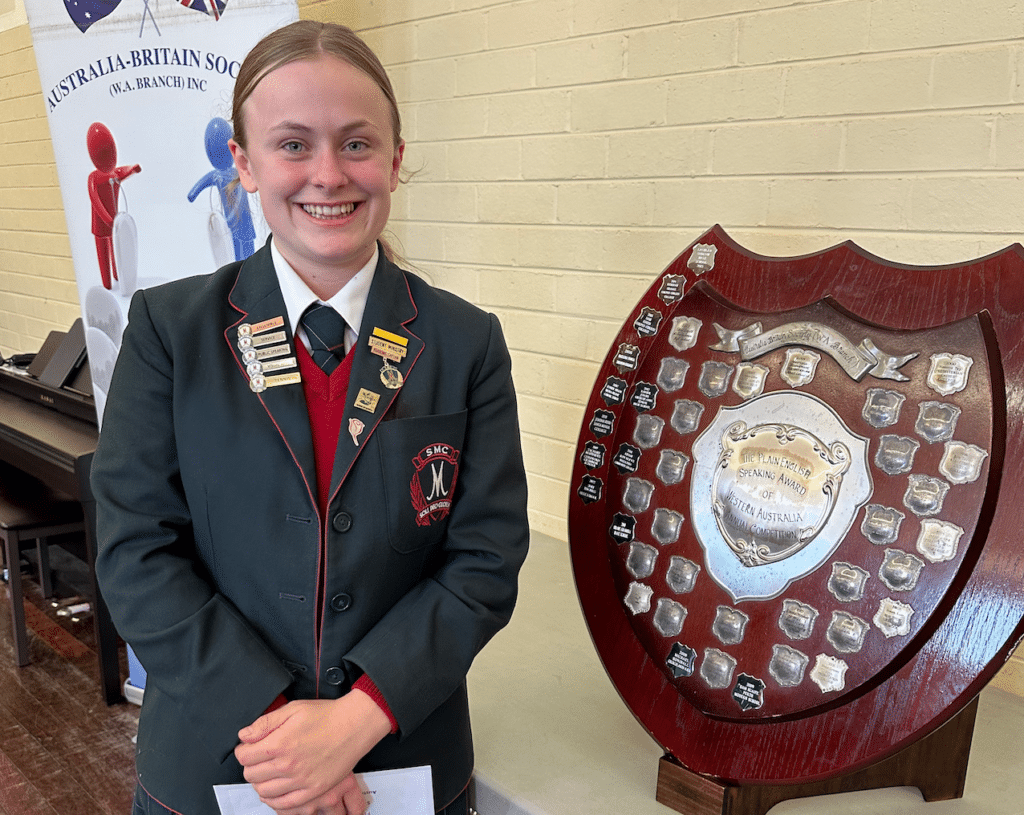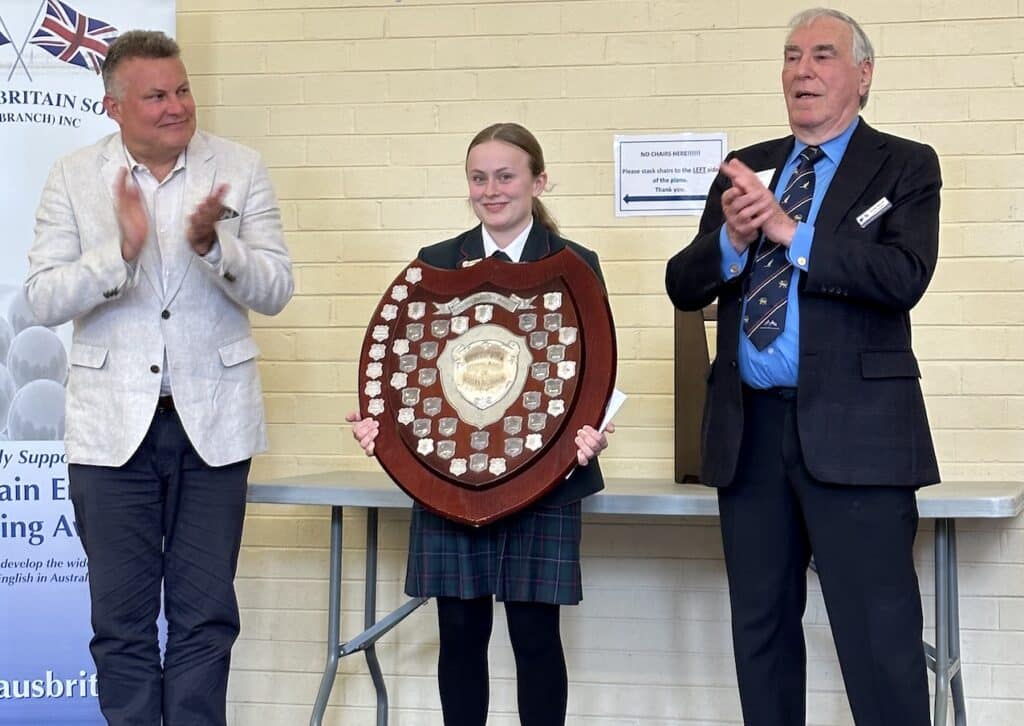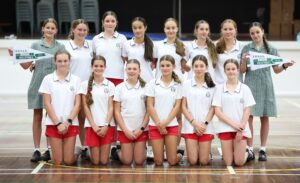Sophia’s Success at the Plain English Speaking Awards

Congratulations to Year 12 student Sophia Marra who earned the title of State Champion at the Plain English Speaking Awards (PESA) recently.
Sophia did an outstanding job presenting an eight-minute speech on the relevance of the monarchy in modern-day society. This was followed by a three-minute impromptu speech, followed and an interview.
Sophia is now gearing up to represent Western Australia at the Nationals in Canberra later this year.
We asked Sophia to tell us about the experience.
What is the Plain English-Speaking Award?
The PESA has been running nationally since 1978. Hosted and funded by the Australian-Britain Society, the competition is dedicated to preserving and fostering the English language within the contemporary world. It tests the contestant’s ability to prepare and present a speech eloquently, as well as focusing on our language and communication skills through an impromptu round and interview.
How did you come to take part? What was the process?
My Homeroom teacher, Miss Doughty, recommended that I participate in the competition. Not only is it a great opportunity to meet like-minded people, but it gave me a chance to keep my love of the English language and literature, in general, alive. I submitted an application that involved detailing my long and short-term goals, ambitions, and achievements. I was then allocated a date to present my speech and competed against five students for a spot in the state final. I was lucky to be selected as one of six students from a range of rounds to represent Santa Maria in the state final. Upon winning, I received a $200 cash prize and an invitation to the Nationals in Canberra later this term – flights and accommodation included.

How did you prepare for the competition and final?
I was required to write and memorise an eight-minute speech for the main round. As well as running through this, filming myself to practice hand gestures and stance, I conducted a few practice impromptus. Having only five minutes in which to write a speech is very hard. I had to rely more on my ability to speak naturally and authentically rather than physically writing out three minutes of content. I made sure to have a few statistics and quotes on current issues handy, and I used all of these in my final impromptu speeches. The judges made it clear that they wanted honesty, authenticity, and a clear structure within both speeches, so I did my best to achieve this.
What happens on the day?
The contestants gather in the foyer and are allocated a speaking position. We then proceed to present our main round of speeches in front of our fellow contestants and adjudicators. Following this, we are taken to a separate room, one by one, and given five minutes to prepare a three-minute impromptu speech on an unseen topic. For the semi-finals, the topic was ‘The End of The Road’, and for the states ‘Fish Out Of Water’. These speeches are delivered to the adjudicators (and audience) without the other students present. Finally, each contestant has a three-minute interview with an adjudicator. During this, I answered questions on my chosen topics in both the impromptu and main round speeches and talked about my ambitions for the future.

What topics did you speak on?
My main round speech was on the relevance of the monarchy in contemporary society, titled ‘God Save The King’. When brainstorming a topic to speak on, I asked myself the question what could I speak forever about? History has always been a passion of mine, the British monarchy specifically, so it was an easy choice. Within my speech, I discussed both the pros and cons of the institution, with my concluding remark reaffirming the indisputable need for a monarchy in Britain and, by extension, Australia. My first impromptu ‘The End of the Road’ was on the rise of AI in our society and what it means for humanity. My second ‘Fish Out of Water’ reflected on human connection and how the rise of technology and social media has rendered our beautifully nuanced language virtually extinct.
What did you learn from this experience?
I learned that there are still people committed to preserving and protecting our language. As an avid reader and someone who has always been fascinated with the literary world, I was immensely grateful for the chance to connect with such intelligent and eloquent students. I had the chance to converse with my competitors, all of whom spoke with passion and conviction. Being surrounded by individuals dedicated to speaking truthfully, eloquently, and from the heart was immensely gratifying. One past winner, who was present for the states, gave us this advice, “Speak from your heart, and speak the truth”.
Has the competition given you any new skills?
Absolutely. I pushed myself to deliver all of my speeches without the use of palm cards – and I did! I have come away from the competition having made friends with so many like-minded people and developed the confidence to speak from my heart rather than simply read from paper.
Congratulations Sophia! We wish you all the best for the Nationals.

Combating The Attention Span Crisis In Our Students – Jennifer Oaten
It is no secret that attention spans have been steadily declining, especially among younger generations growing up immersed in digital technology. The average person’s attention span when using a digital device has plummeted from around two and a half minutes back in 2004 to just 47 seconds on average today – a dramatic 66% decrease over the past two decades.

Weekly Wrap Up: Term 2, Week 2, 2024
Week 2 has come to an end! This Weekly Wrap Up features highlights from Scuba Diving Club, the Sisterhood Series, and Boarding ANZAC Service.

Santa Maria Teams Shine in Term 1 Sports
Santa Maria had a huge number of girls in the IGSSA AFL and Volleyball competition with strong results for a number of teams.
- Confidence, Critical Thinking, Featured, learningforlife, Student Achievement
Author: Santa Maria College
Santa Maria College is a vibrant girls school with a growing local presence and reputation. Our Mission is to educate young Mercy women who act with courage and compassion to enrich our world. Santa Maria College is located in Attadale in Western Australia, 16 km from the Perth CBD. We offer a Catholic education for girls in Years 5 – 12 and have 1300 students, including 152 boarders.






